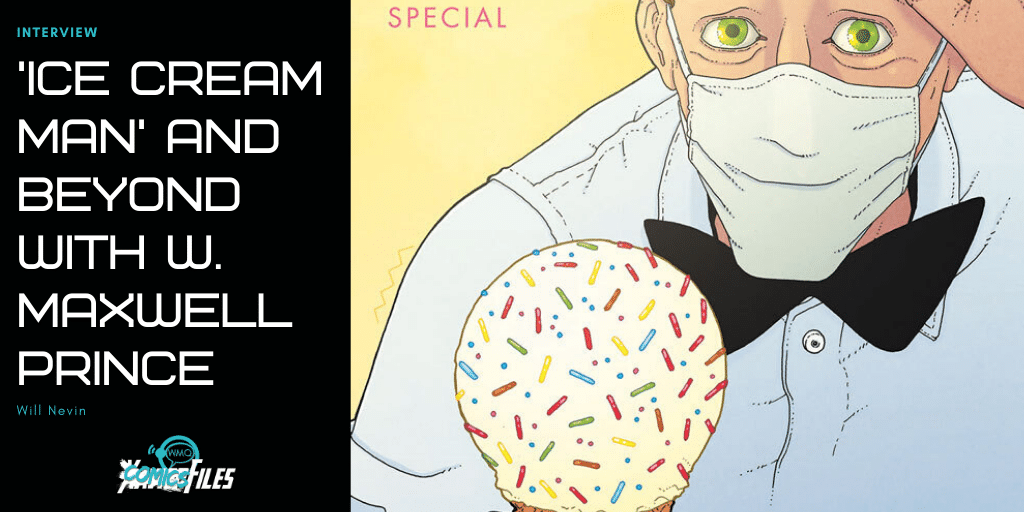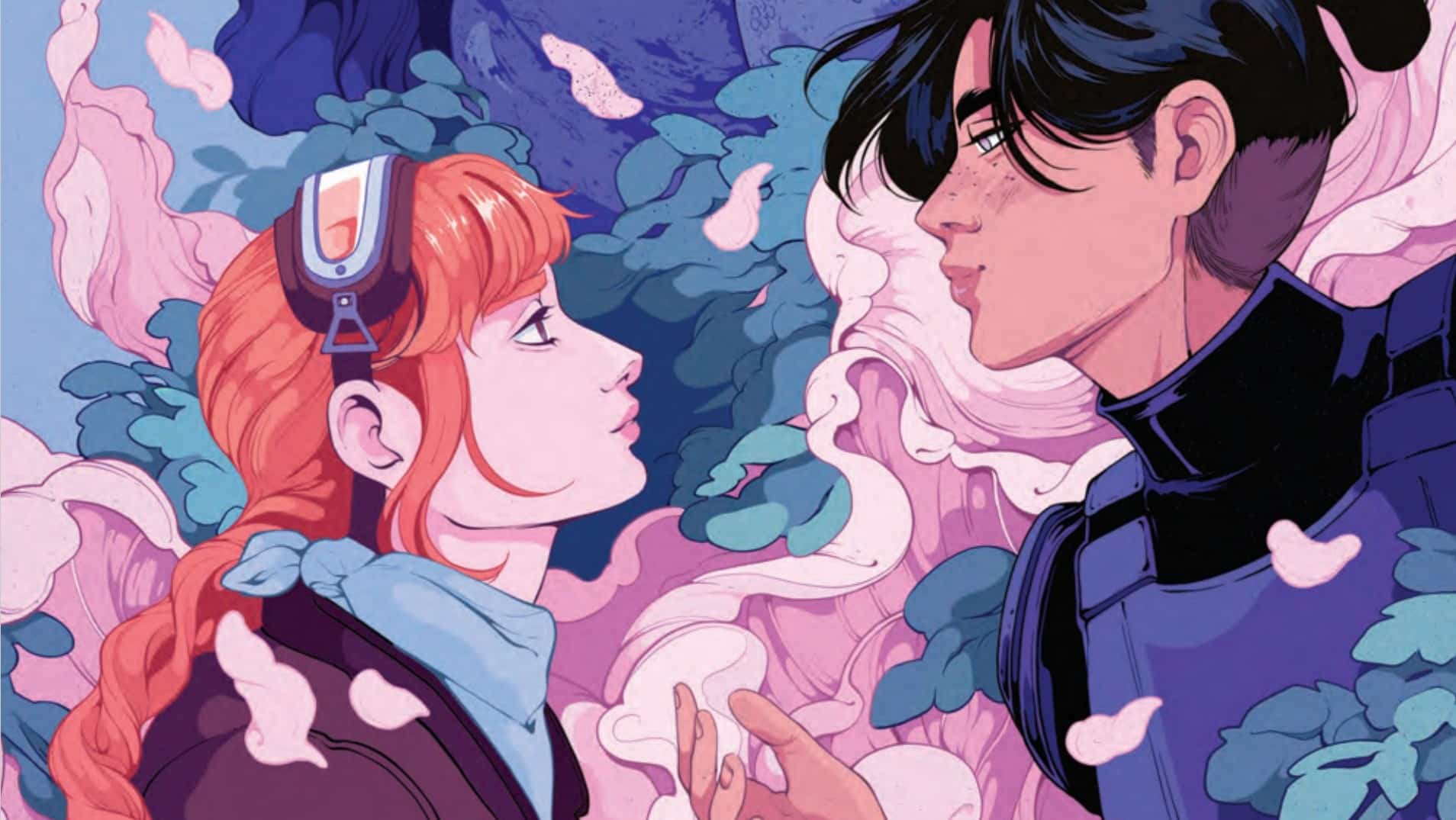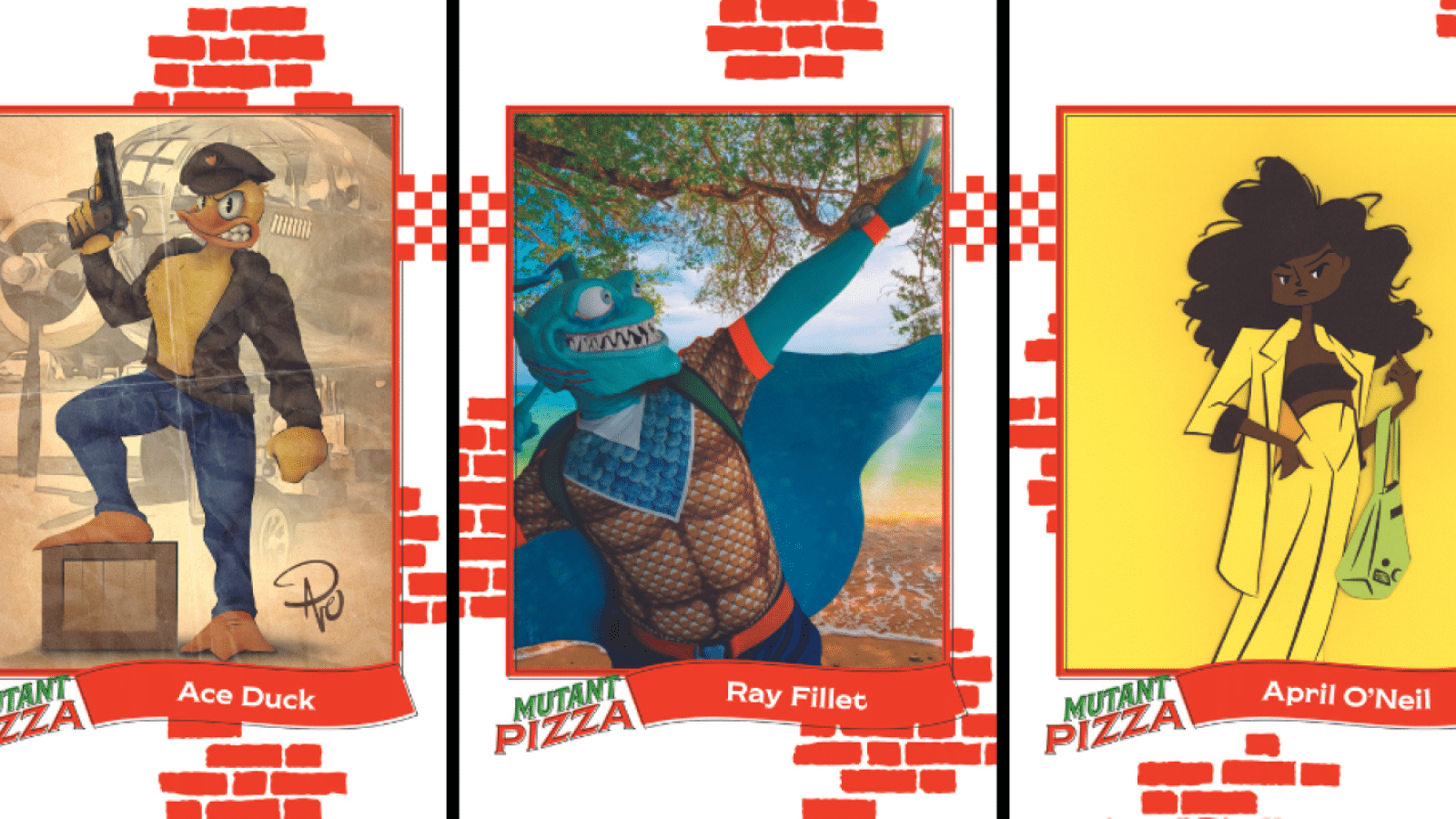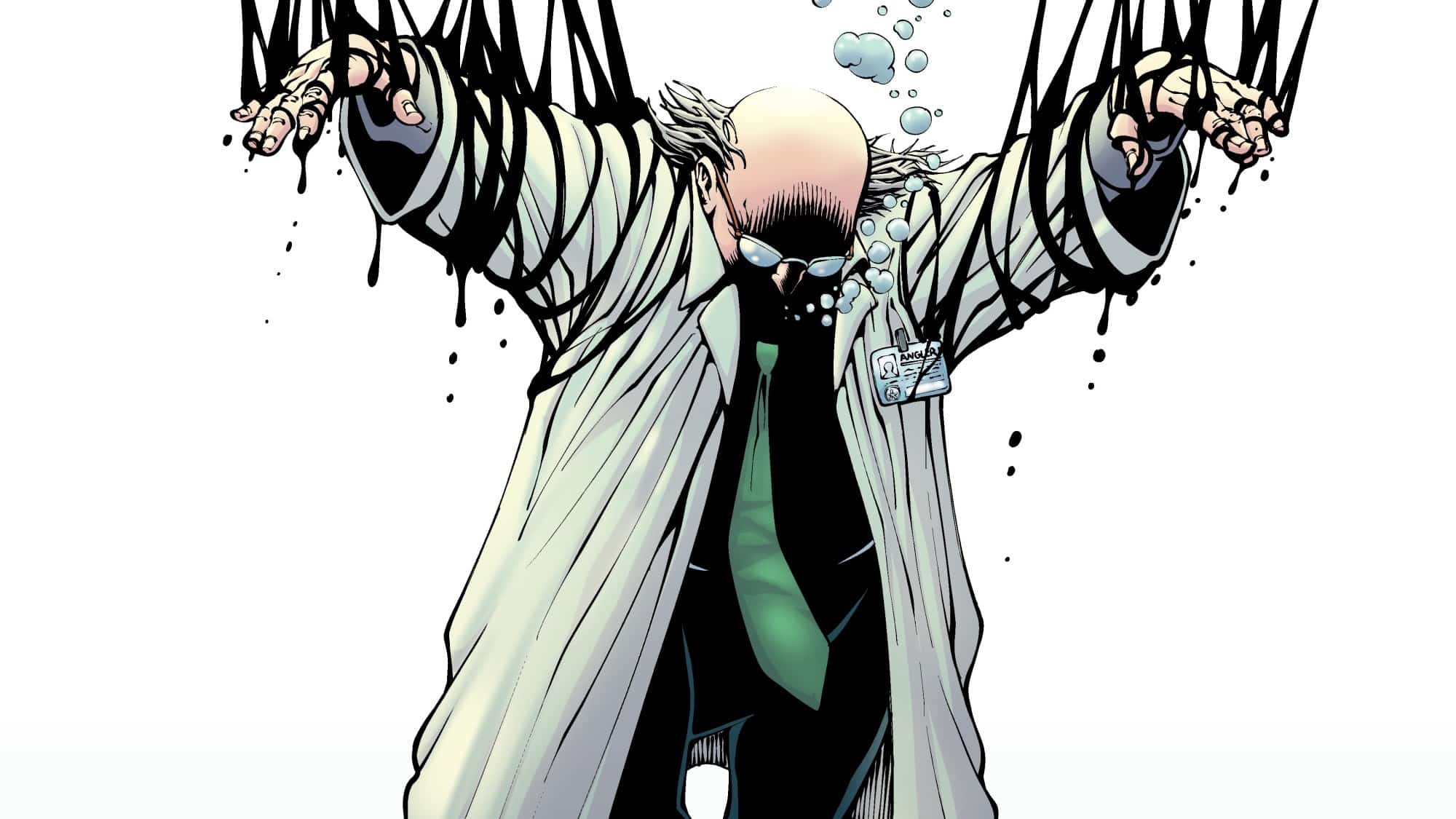Writer W. Maxwell Prince — the man behind the scripts behind the surreal “Ice Cream Man” anthology series at Image Comics and the similarly weird “King of Nowhere” at BOOM Studios — is reclusive…ish. He escaped Twitter (genius), and he gets his comic book industry news, he says, from friends — like when one told him that a scheduled “Ice Cream Man” cover artist, Cameron Stewart, had been exposed as a serial sexual predator.
Prince said it was 3 a.m. when he read artist Aviva Maï Artzy’s description of Stewart’s attempts to groom her when she was a teenager. That same early morning, he sent an email to Image Publisher Eric Stephenson saying the “Ice Cream Man” team would be dropping Stewart because, as Prince told me, “I don’t want to work with people who perpetuate trauma.”
Stewart represents the rot at the core of comics and — just maybe — all of society, but he’s only a small player in Prince’s story, which is one of artistic collaboration and triumph with “Ice Cream Man” colleagues Martin Morazzo and Chris O’Halloran. With their seminal series both adapting to a strange new time and perhaps reaching an end, I talked to Prince via email about navigating the world of coronavirus personally and professionally, his views on what Stewart represents and what we can do to mitigate the damage caused by people like him, and what’s coming next for the “Ice Cream Man” team.
In January, I asked you, “What’s something we’re not ready for?” The last six months have been … something, haven’t they? What’s it been like for you navigating this new, weird world we find ourselves in?
I think the right thing to say is that despite how scared and angry I am at the state of the world, I have it better than most: I live in New York, which took the virus very seriously and is thus now entering its third phase of “reopening”; I have plenty of work between my two jobs to keep me busy (and paid) during quarantine; it’s easy to exercise at home; I’m healthy.
Also: My very life isn’t at risk every time I walk out of the house.
So complaining at all seems ridiculous.
I’m trying to be a good citizen and ally and be present for my daughter and help her understand what’s going on outside of the house and how important it is.
It hasn’t been easy, but what is?

With print distribution paused, stores under lockdown orders and everything incredibly shitty, you guys launched Quarantine Comix. How did that come together? Was bringing other creators into the “Ice Cream Man” world something you always wanted to do?
Honestly, I just wanted (see: needed) an excuse to keep making comics. And the compression from one-shot stories to four-five page ditties felt really natural.
“Come together” makes it seem like it was a very involved operation, but really it was easy to get up and running: Squarespace is turnkey, Martín/Chris were excited to take on the shorts, and the barriers between “idea” and “product” were all but obliterated when we decided to do webcomics. So we just made stuff, then put it out there.
As for other creators, I actually tend to be pretty uptight about other people touching my stuff. But the circumstances of quarantine kind of conferred a feeling of brotherhood to me that felt right to embrace.
I’m really excited about the floppy collection of all the shorts — it’s like double-dipping for charity.
You used your own storefront to handle all of that, and started selling some sweet ICM bundles to help out stores. [Full disclosure to readers: I bought one of said bundles, if only because my ward Tomy wanted the bookmark.] You also wrote letters to everyone who bought one — how busy did all of that keep you?
Thank you for your purchase, customer.
[Will’s note: Coronavirus consumption has been my main coping mechanism. Also, Tomy really did want that bookmark.]
Have you tried to write a letter recently? My hand cramped within 15 minutes.
But yeah, the website was a cinch to get up and running but maintaining it and offering interesting stuff to our readers that’s worth their time and money has kept me constantly moving/planning. But that’s good — I need to move, otherwise I get depressed and think about myself too much.
We’re gonna be offering some cool, different merch pretty soon.
Cameron Stewart — let’s talk about him. He was set to do a cover for you, but then the news broke he’s a manipulative, abusive cretin, and you and Martin pulled the cover. I’m assuming that wasn’t a decision that took long to make? What do you think of the industry’s problem as a whole? And what — aside from online activism that seems so often to be performative — can we do about it?
There are a couple lines of attack to answering this:
- The second I read the account of what Cameron did (which was at 3 a.m. during a bout of insomnia), I wrote Eric Stephenson and said we were dropping the cover. It was an easy decision to make.
- One wrinkle for me vis-a-vis understanding the problems pervading comics is that I’m a little siloed from “the industry” as a whole. I don’t know much about the big players and personalities in comics; I don’t follow comics news; I don’t really have any close friends in this business besides my ICM co-creators, my college roommate and a neighbor of mine. And all of those guys also tend to stay on the periphery of everything like I do. So I get hints of what this industry is like from tweets my friends share with me (I’m not on Twitter, so those don’t flow to me naturally) or articles they forward. And it doesn’t paint a pretty picture. In Cameron’s case, [writer] Deniz Camp gave me a heads up — I googled, found the Twitter thread in which Aviva told her story, then immediately composed an email to Eric canceling the cover.
What I do know deeply is that I don’t want to work with people who perpetuate trauma. I want to be a force, in either a small or big way, toward creating an even playing field for all artists.
But here’s the thing: These problems we’re talking about are universal, everywhere-and-all-the-time problems. Disparity, unfairness, the levers of capitalism; abuse and secrecy; the way the world is ordered in favor of the white male at nearly every juncture.
And so, 3), the thing to do (or the thing I feel is most useful to do) is put your money where your mouth is. That could mean donating to charities/funds, or hiring women and people of color, or marching in favor of these causes. There’s also a kind of quiet activism one could partake in: getting to know your neighbors and coworkers that fall into any of these persecuted demographics, talking to them and “listening” in a way that isn’t performative and online, but local and intimate. And then restructuring the way you operate based on their candor.
It’s important for me to get all this as right as possible, and soon, because I want to teach my daughter to be a decent human being in a world where it’s very easy to avert your gaze from real suffering and injustice.
It’s incumbent on all of us to get it right, too, because the stuff we (so-called progressives) preach ain’t exactly what we’ve been practicing.

Back to good stuff. I hate to even try to pick favorites, but “Ice Cream Man” #19 is right up there with the best of ’em. Was it harder to write the faux instructional manual style/six-panels-per-page story? And it was nice to see you ask Chris to do the impossible (in doing a whole issue in grayscale) for once rather than Martin. But seriously, congrats to the whole team for doing the first comic I’d like to see adapted into a filmstrip.
Thank you. That one was tricky — for everyone, I think. For my part, writing in these clipped, corporate instructions actually wound up freeing a playful aspect of my voice that I think had been hiding for a few issues. It allowed me to do that thing in comics that I love, which is have the visuals sort of contradict the narration.
As for Chris and Martín, I think we’re all just at the point where we share a set of eyes. I used to have to explain myself a lot more (in the script) when I wanted to do unconventional stuff, but now we can get up and running on just about the craziest idea in no time flat.

#20 is up next — and it’s apparently a riff on Seuss? Seems like a fun callback to the start of the arc with your “All Star Superman” take. Anywho, how’d you settle on Seuss as something to explore?
It’s not just Seuss. We riff on “Goodnight You,” “The Giving Tree,” “Are You My Mother” and even do our own ICM version of a lyrical, rhyme-heavy thing.
“Write what you know,” is a cliché, but clichés can be really useful. And what I “know” is that I’m constantly reading my daughter these stories that are at turns sad and scary and weird and way too sophisticated for a young person’s brain. So at some point I decided I wanted to tell my own versions of those stories, with the world of ICM kind of grafted onto the skin.
Martín and Chris are mimicry geniuses, as you’ll see. Their Seuss pages are Seuss; their Goodnight You is just so; their Giving Tree is way sadder than the original, which itself is already really fucking sad.
In some of our conversations, you’ve talked about taking an extended break or even ending the series at #24. Is that still the plan? I mean, that was an idea before everything went to hell.
I honestly don’t know. Right now it feels like 24 would be a good stopping point. I never want to retread ground with this book, so I’m looking out for the warning signs that maybe I’ve exhausted its riches. I haven’t gotten there quite yet, but I can sort of see it hovering on the horizon. One thing I’ve considered is ending at 24, and then doing a bunch of minis — one in the “All-Star” universe, another that’s solely puzzles, and so on. But if not, me and the team are gonna do something new and keep working together, hopefully forever.

“King of Nowhere,” your other ongoing book over at BOOM, is every bit as surreal as “Ice Cream Man,” and I love the core idea — this perennial fuckup Denis wakes up in a place full of fish men and inside-out cobblers and tries to do right, even as some big mean bastard is after him. How did those ideas come together, and what’s cooking for #3 this week?
I’ve known [Senior Editor] Eric Harburn over at BOOM for quite a few years, but it wasn’t until ICM hit that him and I could find a good excuse to work together. He asked me if I had any ideas, and I told him the truth: Nope! So he was kind enough to let me explore some skeletal notions, and KoN is what wound up coming out. I know I’ve wanted to do a “scumbag story” for years—something where the main character isn’t really likable in any way, and winds up completely out of his depth.
As for #3, it’s got Scrabble and a motel run by a turtle and a guy with a Geiger counter.
Finally, with the world on fire and the industry trying to rid itself of scumbags, what’s something to be hopeful about?
Some police are being defunded.
Will Nevin loves bourbon and AP style and gets paid to teach one of those things. He is on Twitter far too often.






